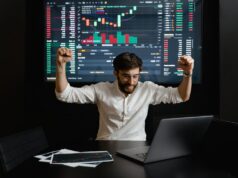Currency trading, often referred to as foreign exchange or Forex trading, is the act of buying and selling currencies on the foreign exchange market with the aim of making a profit. The Forex market is the largest financial market in the world, with a daily trading volume exceeding $6 trillion.
But who are the key players in this vast market and what drives them to trade currencies? Let’s delve into the world of currency trading to find out.
The Main Players
The main players who controls the forex market are central banks, such as the Federal Reserve in the U.S. or the European Central Bank in the Eurozone, which play a pivotal role in the Forex market. They manage their country’s monetary policy and can influence currency values by adjusting interest rates and implementing other monetary tools.
Financial Institutions
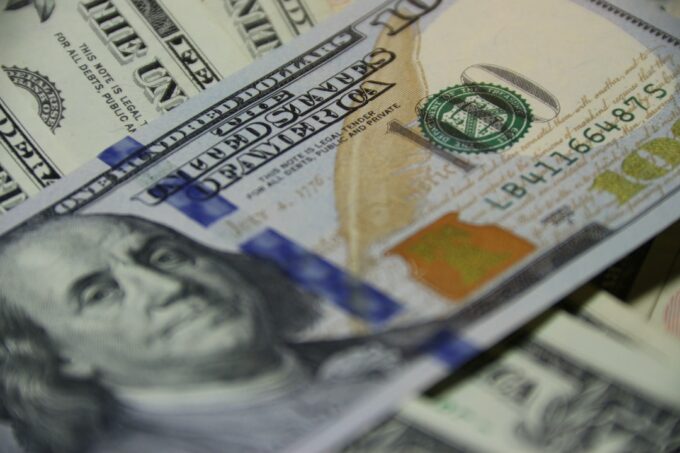
Banks and other financial institutions are the backbone of the Forex market. They facilitate currency trading for clients and engage in proprietary trading where they trade on their own accounts.
Corporations
Multinational corporations require foreign currencies for their overseas operations. They might hedge against currency fluctuations to protect their profits or engage in direct currency trading as part of their financial strategies.
Retail Traders
Individuals like you and me can also participate in the Forex market, typically through online trading platforms. These traders might be driven by various strategies, from day trading to long-term investment.
Why Trade Currencies?
The primary motivation for many participants is the potential for profit. Due to the high liquidity and volatility of the Forex market, traders can capitalize on small price movements to generate significant returns.
Diversification
For investors, currency trading offers a way to diversify their portfolios. By holding assets in various currencies, they can mitigate risks associated with any single currency’s decline.
Hedging
Businesses and investors use the Forex market to hedge against potential losses from adverse currency movements. For instance, an American company doing business in Europe might buy Euros to protect against the Euro’s potential decline.
Speculation
Many traders enter the market purely for speculative reasons, betting on the future movements of currency pairs. They rely on technical and fundamental analysis to predict trends and make their trading decisions.
The Allure of Leverage
One of the unique features of the Forex market is the availability of leverage. Leverage allows traders to control a large position with a relatively small amount of capital. While this can amplify profits, it also increases the potential for losses, making it essential for traders to understand and manage their risk effectively.
Factors Influencing Currency Values
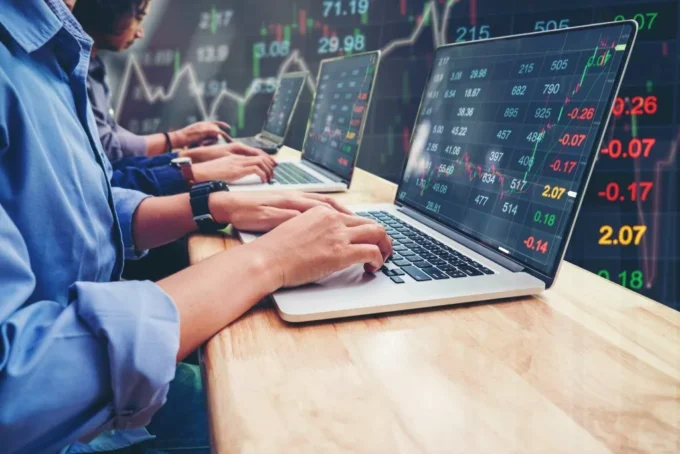
Key economic indicators, such as GDP growth, unemployment rates, and manufacturing output, can influence a country’s currency value. Strong economic performance often boosts a currency’s value and vice versa.
Political Stability
Countries with stable political environments tend to have stronger currencies. Political upheavals or uncertainties can lead to currency devaluation.
Interest Rates
Central banks’ interest rate decisions can have a direct impact on currency values. Higher interest rates offer lenders better returns, attracting foreign capital and boosting the currency’s value.
Market Sentiment
Traders’ perceptions and sentiments can drive currency movements. Factors like global events, news, and even rumors can sway market sentiment and influence currency values.
The Risks Involved
Currency trading is not without its risks. Market volatility, leverage misuse, and geopolitical events can lead to significant losses. It’s crucial for traders to have a solid risk management strategy and stay informed about global events that might impact the market.
Strategies in Currency Trading
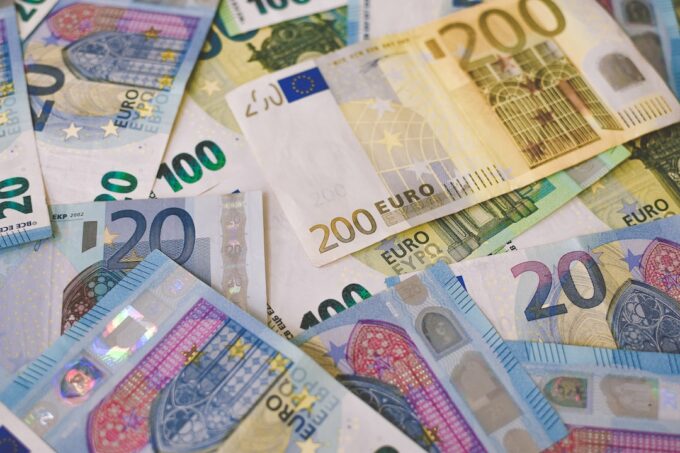
Day Trading
This strategy involves making multiple trades within a single day. Day traders capitalize on short-term price movements and close all positions by the end of the trading day.
Swing Trading
Swing traders hold positions for days or weeks, aiming to profit from short- to medium-term price patterns. They rely heavily on technical analysis to identify potential price swings.
Position Trading
Position traders take a long-term approach, holding onto trades for months or even years. They base their trades on deep fundamental analysis, considering macroeconomic factors and long-term trends.
Scalping
Scalpers aim to make small profits from very short-term price changes. They might make dozens or even hundreds of trades in a single day.
Importance of Technical and Fundamental Analysis
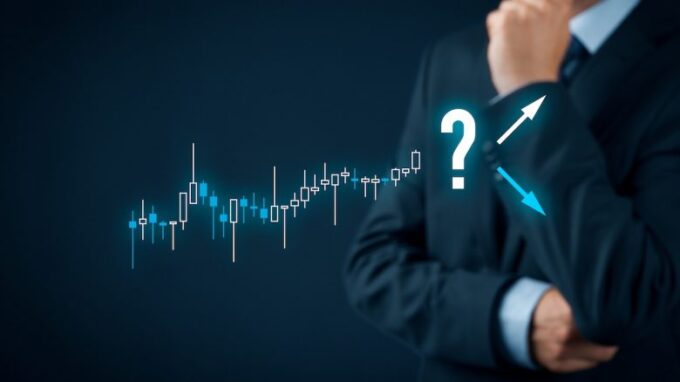
Technical Analysis
Technical analysis involves studying price charts and using statistical measures to predict future price movements. Indicators like moving averages, Bollinger bands, and the relative strength index (RSI) are commonly used tools.
Fundamental Analysis
Traders using this method analyze economic, social, and political forces that might affect a currency’s supply and demand. Factors include interest rates, economic growth, political stability, and overall economic health.
Role of Technology in Forex Trading
Automated Trading
Many traders now use nowadays technology like automated systems or robots to execute trades based on predefined criteria. This allows for faster decision-making and can eliminate emotional trading decisions.
Mobile Trading
With the advent of smartphones and mobile apps, traders can now monitor and execute trades from anywhere in the world, ensuring they never miss a potential opportunity.
Social Trading
Platforms now allow traders to mimic or “copy” the trading strategies of experienced and successful traders, providing a learning opportunity for beginners.
The Global Nature of Forex Market
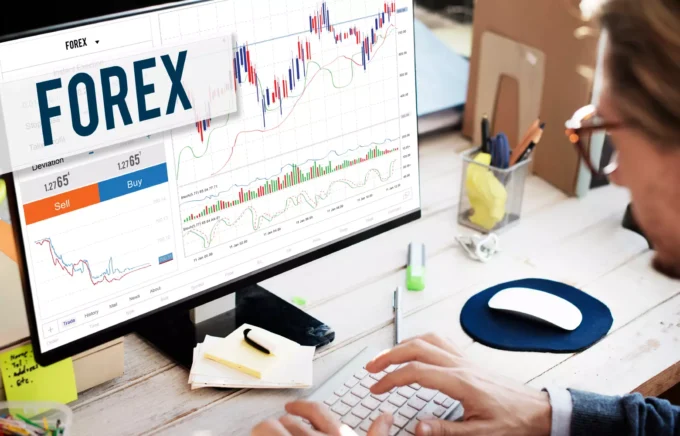
Trading Sessions
The Forex market operates 24 hours a day, five days a week, with three major trading sessions: Asian, European, and North American. Each session has its own characteristics and trading volume.
Major Currency Pairs
The most traded currency pairs include EUR/USD, USD/JPY, and GBP/USD. These pairs are known for their liquidity and volume.
Emerging Market Currencies
Currencies from emerging markets like Brazil, Russia, India, and China are becoming increasingly significant in the Forex market, offering new opportunities and risks.
The Future of Currency Trading
Cryptocurrencies
With the rise of digital currencies like Bitcoin and Ethereum, the landscape of currency trading is evolving. These decentralized currencies offer a new form of trading with their own set of risks and rewards.
Regulatory Changes
As the market evolves, so does its regulation. Traders need to stay informed about regulatory changes in different countries that might impact their trading strategies.
Technological Advancements
From AI-driven trading strategies to enhanced security protocols, the future of currency trading will undoubtedly be shaped by technological innovations.
FAQs

What is the primary purpose of the Forex market?
The primary purpose of the Forex market is to facilitate the exchange of one currency for another, usually for commerce, trading, or tourism. It’s a platform where participants can buy, sell, exchange, and speculate on the value of different currencies.
How is the Forex market different from the stock market?
Unlike the stock market, which deals with the trading of company shares and operates through centralized exchanges, the Forex market revolves around the trading of currencies and operates over-the-counter (OTC). This means there’s no centralized exchange for Forex, and trading can happen 24 hours a day, five days a week, across various international time zones.
Why do individual retail traders participate in the Forex market?
Individual retail traders participate in the Forex market for various reasons, including the potential for profit, the ability to leverage their investments, the opportunity to diversify their portfolio, and the challenge and excitement of speculating on global economic events and trends.
How do geopolitical events influence the Forex market?
Geopolitical events, such as elections, wars, diplomatic tensions, and trade agreements, can have significant impacts on a country’s economic stability and outlook. These events can influence investor sentiment and confidence, leading to fluctuations in currency values as traders anticipate and react to potential economic consequences.
What role do technology and automation play in modern Forex trading?
Technology has revolutionized Forex trading by introducing automated trading systems, allowing for faster and more accurate trade execution. Traders can now use algorithms and robots to execute predefined trading strategies, reducing human error and emotion from the trading process. Additionally, mobile trading platforms enable traders to monitor and trade from anywhere, ensuring they’re always connected to the market.
Are cryptocurrencies like Bitcoin and Ethereum considered part of the Forex market?
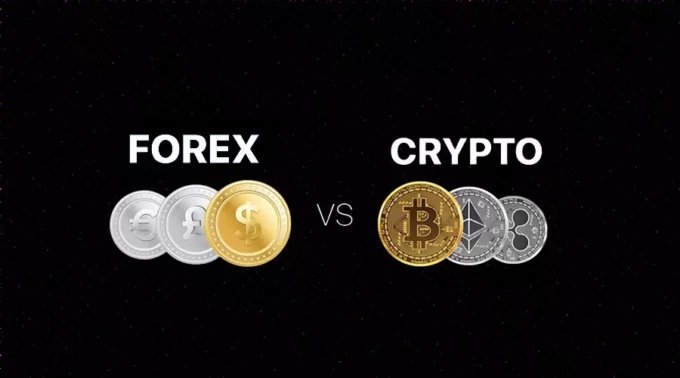
While cryptocurrencies like Bitcoin and Ethereum are digital currencies, they operate in a distinct market known as the cryptocurrency market. However, with the growing popularity and acceptance of cryptocurrencies, many Forex brokers now offer trading pairs that include cryptocurrencies, allowing traders to speculate on their value in relation to traditional fiat currencies.
Conclusions
Learning about the world of currency trading is akin to embarking on a global expedition. From the bustling trading floors of major financial institutions to the solitary screens of individual traders, the Forex market is a testament to the interconnectedness of our modern world. It’s a realm where central banks’ decisions resonate in the pockets of everyday individuals and where a political event halfway across the globe can ripple through your investment portfolio.
As technology continues to reshape the landscape and new players like cryptocurrencies make their mark, one thing remains certain: the Forex market, with its vastness and dynamism, offers opportunities like no other. Whether you’re a seasoned trader or a curious onlooker, the world of Forex is an ever-evolving narrative of risk, reward, and relentless pursuit of knowledge. So, as the sun never sets on this global market, may your trading journey be filled with insights, innovations, and informed decisions. Happy trading!



